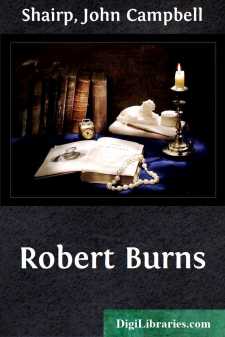Categories
- Antiques & Collectibles 13
- Architecture 36
- Art 48
- Bibles 22
- Biography & Autobiography 815
- Body, Mind & Spirit 144
- Business & Economics 28
- Children's Books 18
- Children's Fiction 14
- Computers 4
- Cooking 94
- Crafts & Hobbies 4
- Drama 346
- Education 58
- Family & Relationships 59
- Fiction 11835
- Games 19
- Gardening 17
- Health & Fitness 34
- History 1378
- House & Home 1
- Humor 147
- Juvenile Fiction 1873
- Juvenile Nonfiction 202
- Language Arts & Disciplines 89
- Law 16
- Literary Collections 686
- Literary Criticism 179
- Mathematics 13
- Medical 41
- Music 40
- Nature 180
- Non-Classifiable 1768
- Performing Arts 7
- Periodicals 1453
- Philosophy 65
- Photography 2
- Poetry 896
- Political Science 203
- Psychology 44
- Reference 154
- Religion 515
- Science 126
- Self-Help 85
- Social Science 83
- Sports & Recreation 34
- Study Aids 3
- Technology & Engineering 60
- Transportation 23
- Travel 463
- True Crime 29
Our website is made possible by displaying online advertisements to our visitors.
Please consider supporting us by disabling your ad blocker.
Robert Burns
Categories:
Description:
Excerpt
YOUTH IN AYRSHIRE.
Great men, great events, great epochs, it has been said, grow as we recede from them; and the rate at which they grow in the estimation of men is in some sort a measure of their greatness. Tried by this standard, Burns must be great indeed, for during the eighty years that have passed since his death, men's interest in the man himself and their estimate of his genius have been steadily increasing. Each decade since he died has produced at least two biographies of him. When Mr. Carlyle wrote his well-known essay on Burns in 1828, he could already number six biographies of the Poet, which had been given to the world during the previous thirty years; and the interval between 1828 and the present day has added, in at least the same proportion, to their number. What it was in the man and in his circumstances that has attracted so much of the world's interest to Burns, I must make one more attempt to describe.
If success were that which most secures men's sympathy, Burns would have won but little regard; for in all but his poetry his was a defeated life—sad and heart-depressing to contemplate beyond the lives even of most poets.
Perhaps it may be the very fact that in him so much failure and shipwreck were combined with such splendid gifts, that has attracted to him so deep and compassionate interest. Let us review once more the facts of that life, and tell again its oft-told story.
It was on the 25th of January, 1759, about two miles from the town of Ayr, in a clay-built cottage, reared by his father's own hands, that Robert Burns was born. The "auld clay bigging" which saw his birth still stands by the side of the road that leads from Ayr to the river and the bridge of Doon. Between the banks of that romantic stream and the cottage is seen the roofless ruin of "Alloway's auld haunted kirk," which Tam o' Shanter has made famous. His first welcome to the world was a rough one. As he himself says,—
A blast o' Janwar' win'
Blew hansel in on Robin.
A few days after his birth, a storm blew down the gable of the cottage, and the poet and his mother were carried in the dark morning to the shelter of a neighbour's roof, under which they remained till their own home was repaired. In after-years he would often say, "No wonder that one ushered into the world amid such a tempest should be the victim of stormy passions." "It is hard to be born in Scotland," says the brilliant Parisian. Burns had many hardships to endure, but he never reckoned this to be one of them.
His father, William Burness or Burnes, for so he spelt his name, was a native not of Ayrshire, but of Kincardineshire, where he had been reared on a farm belonging to the forfeited estate of the noble but attainted house of Keith-Marischal. Forced to migrate thence at the age of nineteen, he had travelled to Edinburgh, and finally settled in Ayrshire, and at the time when Robert, his eldest child, was born, he rented seven acres of land, near the Brig o' Doon, which he cultivated as a nursery-garden....



